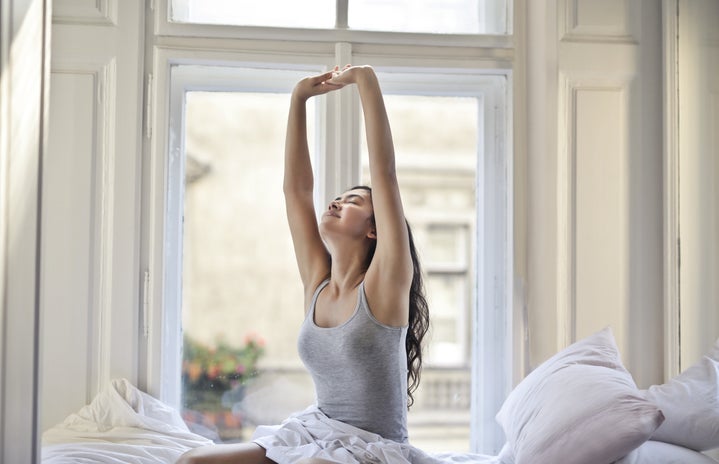With the widespread feelings of uncertainty arising from the COVID-19 pandemic and its effects on the global population, experts have found that the pandemic has a significantly detrimental effect on people’s mental health. This is certainly concerning, as resources for accessing help for mental health issues are scarcer during this time, and it is encouraged that we try to take as much care for our personal wellbeing as we can amid this crisis. The discourse of the negative effects of the pandemic on our society has led me to think about the other end of the spectrum, that is, the positive side. What can we gain/have we gained from this lockdown experience?
- Time to rediscover and engage in passions
-
Many of us have neglected our hobbies, interests, and passions to prioritise and make room for the more important responsibilities, such as studies and work. Undoubtedly, we now have more time on our hands to make use of in various ways, which hasn’t been the case until recently. I did nothing but write poetry during the two weeks of lockdown, and it was the most I had written in months. It goes without saying that this is the perfect time to rediscover and engage in those passions you had neglected when life got too stressful. Whether it’s painting, cooking or crafts, we all need something to redirect our energy and create something cool in the process. Additionally, engaging in creative activities has been proven to improve mental health, which most of us need during this time. Remember that you don’t have to be good at something to enjoy doing it.
- An opportunity to reconnect with yourself, and others, and examine your life(style)
-
Our daily school and work routines have set us on autopilot mode, where we go about our day getting things done, only to come home and feel too tired to do anything besides study and continue with work. We plummet into bed with exhaustion weighing us down, only to do it all over again the next day and repeat the process daily. This leaves minimal room to spend time with ourselves and practise introspection and mindfulness – things that help us slow down and be one with ourselves and our environment. Thankfully, we now have this opportunity to reconnect and breathe. It is of utmost importance to constantly check in with ourselves and those close to us, ask questions that relate to our lives and re-examine what has been working and what we can change. Now that we are forced to spend solitary time with ourselves, we can get to know more about who we are and heal from things that we have been suppressing.
- Self-discipline
-
With the decreased amount of structure and routine I’ve experienced, my levels of motivation and productivity declined. This is in stark contrast to the amount of work I could get done at campus. However, I learned to harness skills such as self-discipline and balance that help to get through high-stress and low-motivation days. Self-discipline influences your levels of productivity and motivation, and includes habit formation. This takes time and effort, but there are numerous studies that prove the benefits. The more you do something and make it a habit, the less resistance you build when faced with the task, which decreases the times you procrastinate. If you were used to working at the library and exercising at the gym, make those activities a habit at home (if you can). Build your personalised schedule that can also be flexible – work on following this schedule daily and you’ll notice how those activities become habits. Checklists are very helpful too. Remember, though, that it’s okay if you are unable to be productive on some days – don’t be hard on yourself.
- Gratitude
-
After much time spent indoors, I started going for regular walks, and it was one of the most glorious feelings I had experienced. Suddenly a plain old walk felt like I had been released from solitary confinement, and the cabin fever was reduced to an extent. I now enjoy going to the grocery store and waiting in line because it is a vague signifier of freedom. The lockdown and pandemic have taken many things from us that we wish we could have appreciated more, such as physical connection, socialization, and time spent in nature – the world looks brighter and more colourful when it has been taken away from us. This can remind us to never take simple things for granted and practise more gratitude. Many people are suffering right now, and this serves as a reminder to those of us who are healthy and more advantaged to count our blessings and be infinitely grateful to be less affected than many others are. Our health and the people in our lives are precious things that could be stripped away so quickly without notice.
This period has been hard on all of us, but there are some useful things we can take away from it and use in the future: cultivating a sense of calm and positivity can help us get through; focus on what you can control and continue practising gratitude often. Realising the ways in which I could see the ‘bright side’ has enabled me to cope easier and be patient, knowing that this will also pass, at some point.


